Blinken travels to Egypt to secure Gaza ceasefire
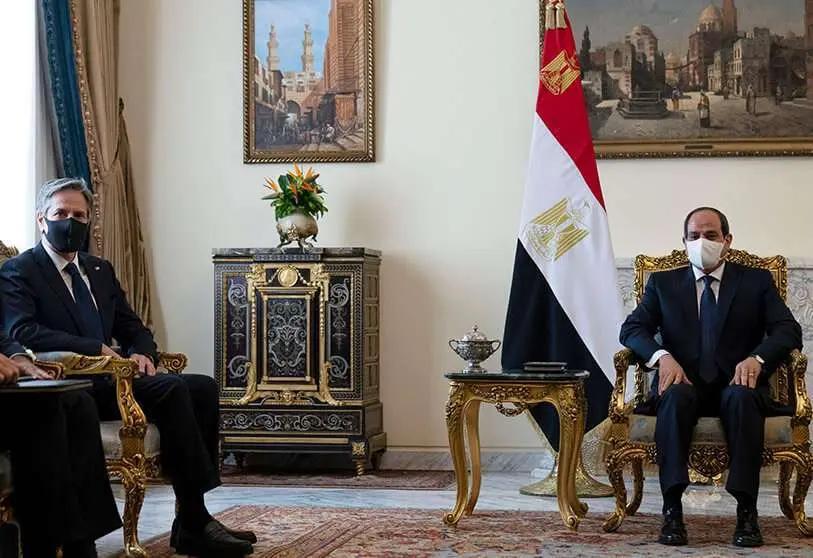
Diplomatic meetings on the Gaza ceasefire continue to take place, along with delicate efforts by Arab countries to bring about a peace process. This time, US Secretary of State Antony Blinken travelled to Egypt and Jordan to reinforce a diplomatic ceasefire. The ceasefire has brought an end to 11 days of fighting between Israel and the Hamas group, hostilities that have claimed the lives of more than 200 people.
Blinken pledged to "rally international support" to rebuild the damage in Gaza and stressed that aid to the area would not fall into the hands of Hamas. Following Israel's proclamation of the ceasefire, dozens of Israelis took to the streets of Tel Aviv to call for the truce to continue and for peaceful coexistence between Arabs and Jews to be recognised.

In the peace process, Egypt, Jordan and the United Arab Emirates have played a key role in bringing about a definitive cessation of violence between Israel and Hamas. In this regard, Blinken underlined the importance of Egypt and Jordan as key states in trying to bring about peace in the region. As Blinken told the press, "Egypt played a key role in helping to broker the ceasefire and Jordan has long been a voice for peace and stability in the region".
However, the secretary of state has set tentative goals for the trip, his first to the Middle East since officially taking up his post. In previous meetings, Blinken has been keen to emphasise that the US has no set peace plans to bring calm to the region, but has expressed hope for building a "better environment" in which peacemaking can take place.
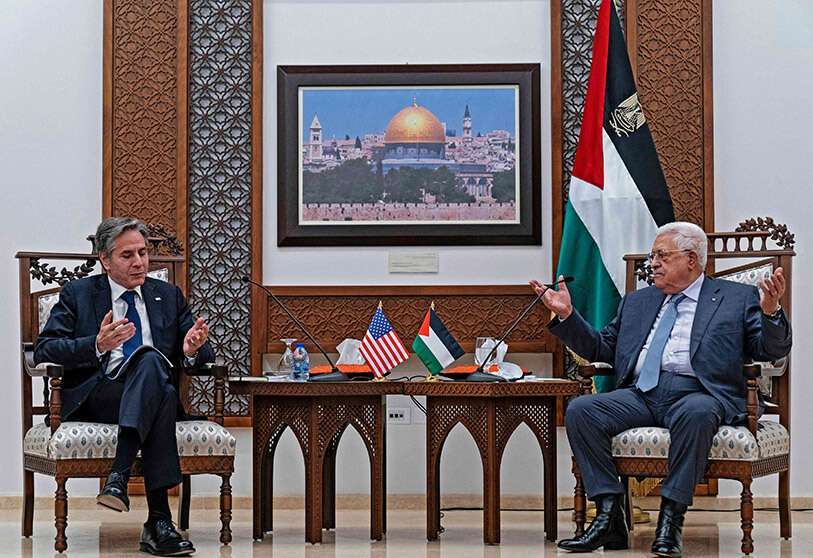
According to Arab News, Blinken is in the region to "rebuild the relationship with the Palestinian Authority and the Palestinian people, a relationship built on mutual respect and also a shared conviction that Palestinians and Israelis deserve equal measures of security, freedom, opportunity and dignity".
In a gesture of rapprochement with the Palestinians, the secretary has announced plans to reopen the US consulate in Jerusalem, which previously handled diplomatic relations with the Palestinians. The decision has reportedly already been communicated to both Abbas and Netanyahu, but no date has been set for the reopening.
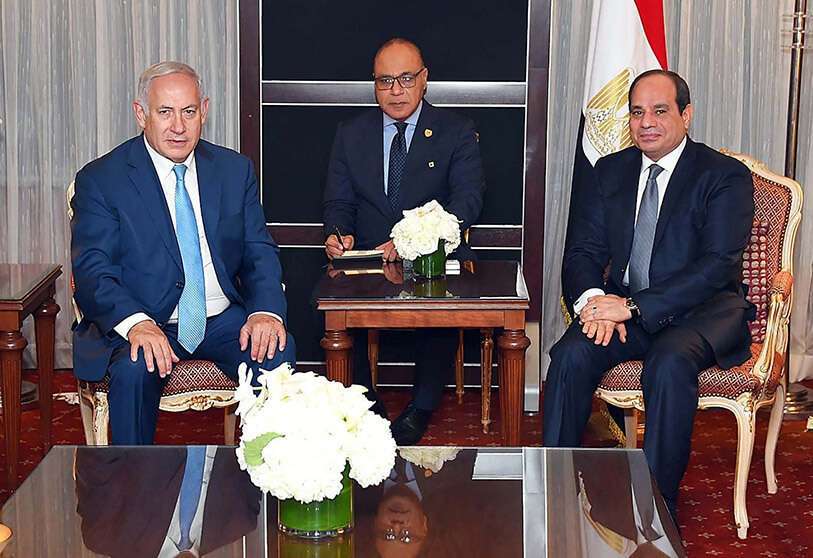
Egypt has been the main mediator in bringing the Israelis and Palestinians to a ceasefire and is the only country that maintains communication ties in both Israel and Palestine. One of the Egyptian delegations travelled to Gaza on 21 May to monitor the cessation of hostilities, while another group of Egyptian diplomats travelled to Israel to discuss the same issue.
A day later, the Gaza delegation travelled to the West Bank to meet with the Hamas group and Palestinian President Mahmoud Abbas. The meeting discussed possible ways to "reinforce the truce" and "coordinate efforts for the reconstruction" of Gaza.
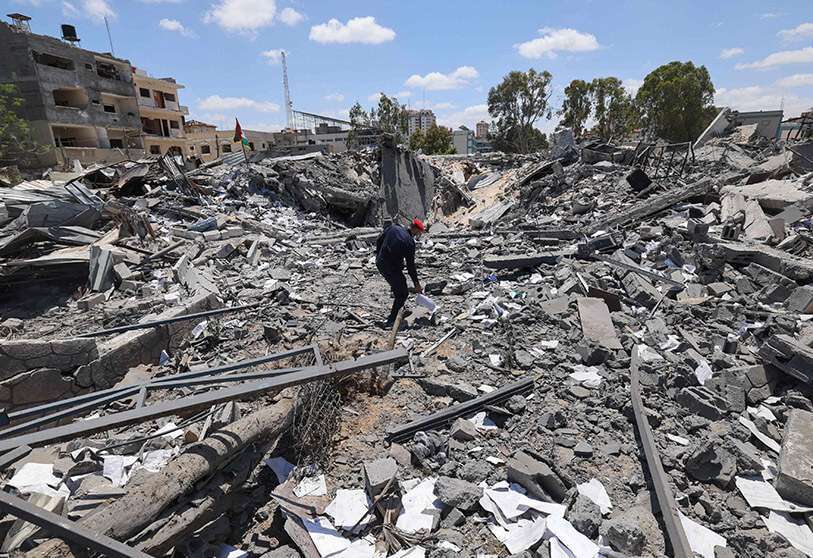
For its part, Jordan has supported the ceasefire and now seeks to influence its prolongation in time, as was done in meetings between Jordanian Foreign Minister Ayman al-Safadi and his Palestinian counterpart, Riyad al-Malki. According to a statement released by the Jordanian ministry, the two representatives agreed on how to take "effective and just" action and "de-escalate the situation in the occupied Palestinian territories".
In the statement, Al-Safadi added that Jordan would continue to "protect Jerusalem and its Islamic and Arab sanctities and continue joint work to protect the rights of the inhabitants of the Sheikh Jarrah neighbourhood". This neighbourhood was one of the key flashpoints for Jerusalem-Palestinian offensives following several expulsions of Palestinian residents of this neighbourhood in favour of Israeli settlers.
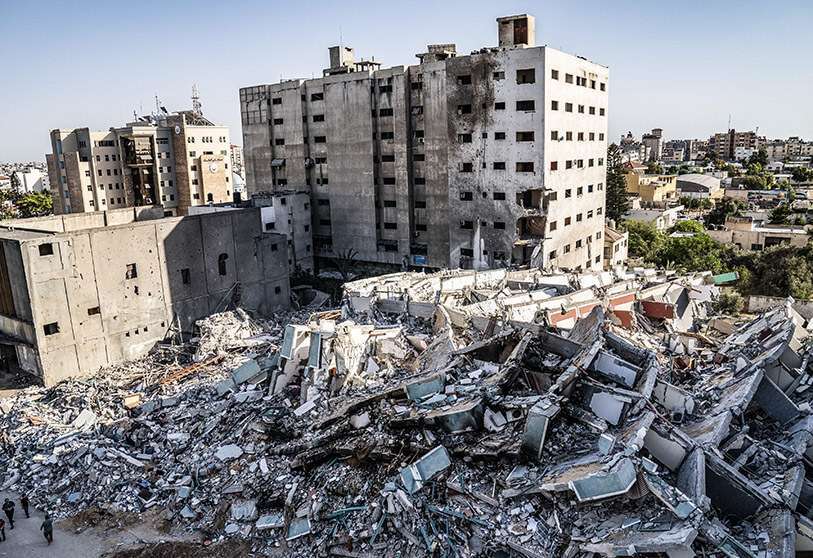
Another country that is trying to influence the process is the United Arab Emirates. Crown Prince Mohammed bin Zayed said the country is willing to "work with all parties to maintain the ceasefire and explore new ways to de-escalate and achieve peace". The prince also praised Egypt's role in mediating the crisis to "calm and stop the bloodshed of innocent civilians," according to WAM news agency.
In addition to the interventions of the Arab countries, the Security Council issued statements in which the 15 member countries declared their "total adherence" to the cessation of the conflict. They also underlined "the immediate need" to approve a humanitarian assistance plan for Gaza which, according to UN Secretary General António Guterres, would focus on developing a "solid package of support for rapid and sustainable reconstruction and recovery".








